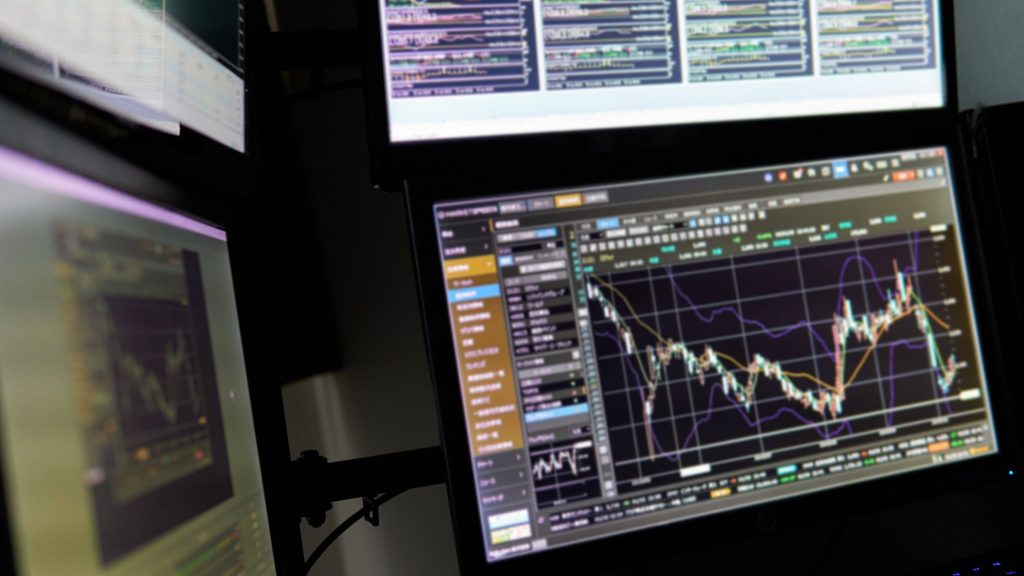What is Damage Control in Forex Trading?
Damage control in trading generally refers to the actions taken to mitigate losses in the event of an adverse market move or unexpected event. In forex, this could involve implementing risk management strategies such as setting stop-loss orders or hedging positions to limit potential losses. Additionally, traders may employ techniques such as scaling out of losing trades, adjusting position sizes, or even exiting the market entirely to prevent further losses. The goal of damage control is to minimize the impact of losses on overall trading performance and to protect capital for future trading opportunities.
While we have our own brand of damage control (DC) at The Trading Mentor, this article will be focused on the more generic and traditional forms of protection.
The Importance of Damage Control in Forex Trading
Damage control is crucial in forex trading because the forex market can be volatile and unpredictable, making it difficult to predict market movements for currency pairs with complete certainty. As a result, traders need to be prepared for potential losses and have a plan in place to mitigate them. Without effective damage control strategies, traders may incur significant losses that could wipe out their trading account and even prevent them from continuing to trade. By implementing risk management techniques for their trading strategies and staying disciplined in their approach, traders can help protect their capital and ensure they are able to continue trading over the long-term.
Identifying Potential Damage in Forex Trading
Understanding the Impact of Market Volatility on Forex Trading
Market volatility has a significant impact on forex trading because it affects the price movements of currency pairs. Volatility refers to the degree of variation in the price of an asset over time, and in the forex market, it is often driven by factors such as economic and political developments, changes in interest rates, and global events.

High volatility in the forex market can present opportunities for traders to profit through taking advantage of price fluctuations. However, it also increases the risk of losses, particularly if traders do not have effective risk management strategies in place. During periods of high volatility, currency pairs can experience sharp and sudden price movements that can lead to large gains or losses in a short amount of time.
Low volatility, on the other hand, can make it more challenging for traders to find profitable opportunities, as price movements may be more muted and predictable. In these conditions, traders may need to adjust their trading strategies or even sit on the sidelines until market conditions become more favorable.
Recognizing the Effects of Emotional Trading on Forex Trading
Emotions can play a significant role in forex trading and general trading psychology, as they can influence a trader\’s decision-making process and overall performance. Here are some of the ways emotions can impact forex trading:
- Fear and Greed: Fear and greed are two of the most powerful emotions that can impact traders. Fear can lead to hesitation and prevent traders from taking advantage of profitable opportunities, while greed can cause traders to take on excessive risks and make irrational trading decisions.
- Overconfidence: Overconfidence can lead traders to take on too much risk and underestimate the potential downside of a trade. This can result in losses and even blow up a trading account.
- Impulsivity: Impulsive trading decisions can result in losses, as traders may enter and exit positions without a clear strategy or understanding of market conditions.
- Frustration: Frustration can lead traders to abandon their trading plan or make rash decisions that are not based on sound analysis or logic.
To minimize the impact of emotions on trading, traders can develop a solid trading plan that outlines their goals, risk tolerance, and strategies for managing emotions. They can also use risk management tools like stop-loss orders to limit losses and prevent emotional reactions to market volatility. Additionally, traders can practice mindfulness techniques like meditation or deep breathing to help manage their emotions and stay focused on their trading plan.

Managing Risk in Forex Trading for Optimal Damage Control
The optimal way to manage risk as a form of damage control is to implement a comprehensive risk management strategy that includes the following:
- Set Stop Loss Orders: Stop loss orders are a type of order that is placed with a broker to automatically close a position when the price of an asset reaches a certain level. This can help limit potential losses and prevent trades from turning into significant liabilities.
- Determine Position Sizes: Traders should determine their position size based on their risk tolerance, trading strategy, and available capital. Position sizing should be based on a percentage of the trading account balance rather than a fixed dollar amount.
- Diversify Your Portfolio: Diversification is an effective way to manage risk by spreading out investments across multiple currency pairs, asset classes, and markets. This can help reduce the impact of volatility on overall trading performance.
- Use Leverage Wisely: While leverage can increase potential profits, it can also increase potential losses. Traders should use leverage wisely and only trade with leverage they can afford to lose.
- Have a Trading Plan: Having a trading plan that outlines entry and exit points, risk management strategies, and position sizing can help traders stay disciplined and avoid impulsive trading decisions.
Implementing Damage Control Strategies in Forex Trading
Utilizing Stop Loss Orders in Forex Trading
Stop loss orders are a type of order that is placed with a broker to automatically close a position when the price of an asset reaches a certain level. Stop loss orders are designed to limit potential losses and protect traders from significant declines in the value of their positions. Here\’s how they work:
- Placing a Stop Loss Order: When placing a stop loss order, traders select a specific price level that they are comfortable with in terms of the maximum loss they are willing to incur. This is often based on technical analysis, support and resistance levels, or other factors.
- Triggering a Stop Loss Order: If the price of the asset reaches the predetermined level, the stop loss order is triggered and the position is automatically closed. This helps to limit the trader\’s losses to a specific amount and prevents the trader from suffering further losses if the price continues to decline.
- Types of Stop Loss Orders: There are several types of stop loss orders, including market orders, which are executed at the next available price once the stop loss level is reached, and limit orders, which are executed at a specific price level that the trader sets.
- Advantages of Stop Loss Orders: Stop loss orders can help traders manage risk by setting predefined exit points that limit potential losses. They can also help to remove emotions from trading decisions and allow traders to focus on their overall trading strategy rather than reacting to short-term market movements.
Stop loss orders are a critical tool for risk management and damage control in forex trading. Traders should carefully consider their risk tolerance, trading strategy, and market conditions when placing stop loss orders to ensure they are effectively managing risk and protecting their capital. There are strategies for damage control which do not involve using stops, but rather utilize hedging and other more advanced forms of capital protection.
Diversifying Your Portfolio for Improved Damage Control
Portfolio diversification can improve damage control in forex trading by spreading out investments across multiple currency pairs, asset classes, and markets. By diversifying their portfolio, traders can reduce their exposure to any single currency or market and limit the impact of volatility on their overall trading performance. This can help to reduce the risk of significant losses due to market fluctuations or unexpected events. Additionally, portfolio diversification can increase the potential for long-term profits by allowing traders to take advantage of different trading opportunities across a range of markets and asset classes.
Maintaining Discipline in Forex Trading for Effective Damage Control
Maintaining discipline is essential for traders to effectively manage risk and practice damage control in forex trading. Here are some of the best ways to ensure that a trader maintains discipline:
- Stick to a Trading Plan: Traders should have a clear and well-defined trading plan that outlines their goals, risk tolerance, and strategies for entering and exiting positions. Sticking to the trading plan can help traders avoid impulsive decisions and stay focused on their long-term objectives.
- Practice Self-Control: Traders should practice self-control and avoid letting their emotions drive their trading decisions. This can be achieved through mindfulness techniques like meditation or deep breathing, which can help traders stay calm and focused in the face of market volatility.
- Use Technology to Stay Disciplined: Technology can be used to help traders stay disciplined by automating certain aspects of the trading process. For example, traders can use stop loss orders to automatically close positions at predetermined levels, or use trading bots to execute trades based on predefined parameters.
- Learn from Mistakes: Traders should review their trades regularly and learn from their mistakes. This can help them identify areas for improvement and avoid making the same mistakes in the future.

Maintaining discipline can have a significant impact on damage control in forex trading. By staying disciplined and sticking to their trading plan, traders can avoid impulsive decisions and limit potential losses. Additionally, by learning from their mistakes, traders can improve their overall trading performance and achieve long-term success in the forex market.
Common Pitfalls to Avoid in Forex Trading Damage Control
Overtrading and Its Negative Impact on Damage Control
Overtrading can have a negative impact by increasing the risk of losses and limiting the effectiveness of risk management strategies. Overtrading can occur when traders enter too many positions or trade too frequently, often as a result of impulsive or emotional decision-making. This can lead to increased transaction costs, reduced profitability, and a lack of discipline in implementing risk management strategies like stop loss orders or diversification. By overtrading, traders may also miss out on better trading opportunities that are aligned with their overall strategy. Therefore, avoiding overtrading is crucial to effective damage control and long-term success in forex trading.
Failing to Manage Risk and Its Effect on Damage Control
When forex traders fail to manage risk and risk appetite properly, they are exposing themselves to potential losses that can be significant and damaging to their trading account. Here are some potential consequences of improper risk management in forex trading:
- Large Losses: Traders who fail to manage risk properly can experience large and potentially catastrophic losses, which can wipe out their trading account and put them in debt.
- Emotionally Driven Decisions: Traders who are not properly managing risk are more likely to make emotionally driven decisions, which can lead to impulsive trades and further losses.
- Reduced Profitability: Traders who do not implement risk management strategies may miss out on potential profits, as they are more likely to make trades that are not aligned with their overall trading strategy.
- Inability to Manage Capital: Traders who do not manage risk properly may find it difficult to manage their capital effectively, which can limit their ability to take advantage of trading opportunities and grow their account.
Failure to manage risk properly can have significant negative consequences for forex traders, both in terms of potential losses and missed opportunities for profits.
Ignoring Market News and Trends and Its Effect on Damage Control
Ignoring market news can have a negative impact on a trader’s damage control strategy in forex trading. Market news and events can impact the value of currency pairs and lead to sudden price fluctuations, making it important for traders to stay informed about key economic indicators, political developments, and other news that may affect the markets. Ignoring market news can lead to uninformed trading decisions and increased exposure to risk. By staying informed about market news, traders can adjust their trading strategy to avoid potential losses and take advantage of trading opportunities that may arise. Ignoring market news can lead to missed opportunities and limit a trader’s ability to effectively manage risk and practice damage control in the forex market.
Conclusion
In this article, we discussed the importance of damage control in forex trading and the strategies that traders can use to effectively manage risk. We explored the impact of emotions, market volatility, and overtrading on damage control, and how proper risk management strategies like stop loss orders and portfolio diversification can limit potential losses and improve long-term profitability. We also highlighted the importance of staying disciplined, learning from mistakes, and staying informed about market news to effectively manage risk and achieve success in the forex market. By following these strategies and maintaining a disciplined approach to forex trading, traders can practice effective damage control and achieve their trading goals.




